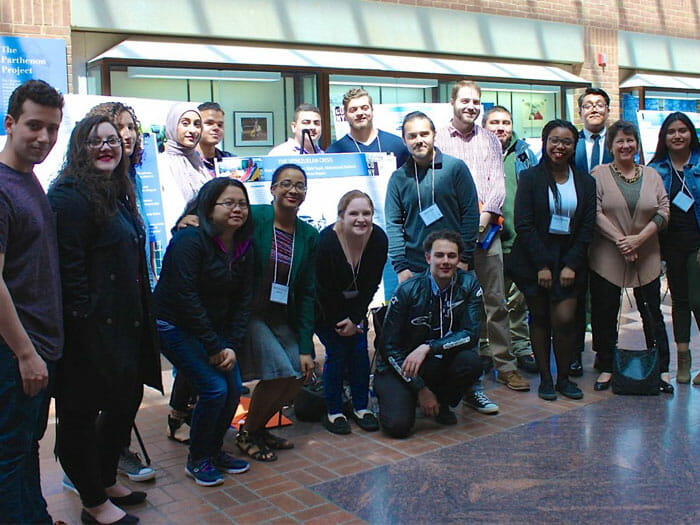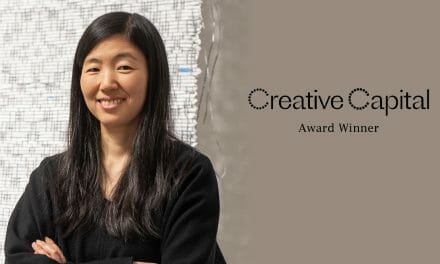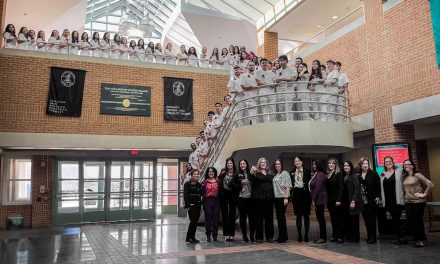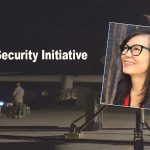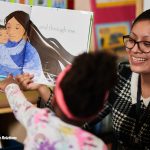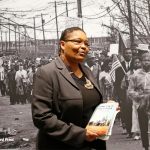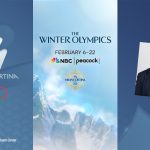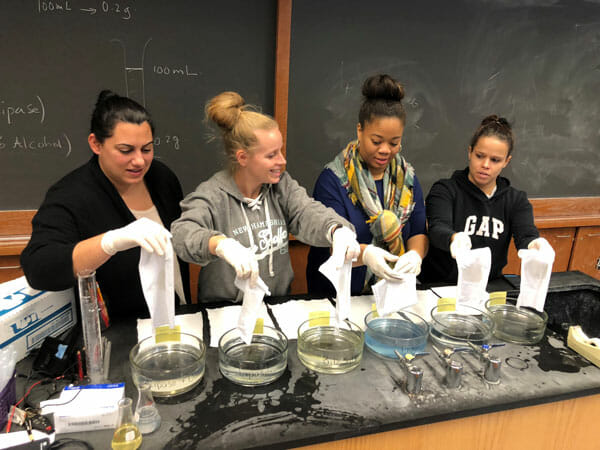
Noyce Masters Teaching Fellows, left to right, Natasha Marrapodi (P.S. 20), Rebecca Lugo (P.S. 78), Lisa Thompson (P.S. 78), and Raffaella Passanisi (P.S. 20) working on a chemistry project during a graduate course at the College of Staten Island.
One day recently, Natasha Marrapodi overheard an exchange between one of her elementary school students and his mother during pick-up at P.S. 20 in Staten Island’s Port Richmond neighborhood.
“I’ll pick you up early,” the mother said.
“You can’t pick me up early on Monday, Wednesday, and Friday because I do STEM with Ms. Marrapodi!” her son replied.
There are probably a thousand exchanges like this between parents and children at any school’s pick-up on any given day. But this stood out to Marrapodi.
“For a kid to actually want to stay,” she mused recently. “He’s in school all day, 8 to 4, and he wants to stay for STEM.”
STEM refers to Science, Technology, Engineering and Math.
Marrapodi credits her participation in the College of Staten Island’s Noyce Master Teaching Fellowship program for her students’ increased enthusiasm. The National Science Foundation-funded $1.3 million initiative, “Developing Science Leaders in High-Need Elementary Schools: Noyce Master Teaching Fellows Academy,” is aimed at improving the quality of science education.
The Noyce Master Teaching Fellowship program is one of several College of Staten Island initiatives that are addressing the quality of teaching in schools generally across the borough and beyond. Since 2006, the CSI Teacher Education Honors Academy (TEHA) directed by Dr. Jane Coffee has supported entering freshmen and sophomores who wanted to major in mathematics and science and to teach in a NYC high need middle or high schools. Since 2009, CSI has supported TEHA sophomores in their junior and senior years thanks to NSF funding.
In July, two Noyce Master Teacher Fellows joined CSI faculty at the Noyce Summit in Washington, DC
Rebecca Lugo, a science cluster teacher at P.S. 78, said she has started to notice the difference the program has made in her teaching approach, too.
“We are early in the program (one year out of five so far),” she wrote in an email. “But I have already begun to shift my teaching style, looking for opportunities to harness students’ curiosity and for ways to make my classes more inquiry-based.”
Lugo and Marrapodi are among 15 teachers in nine Staten Island Title I elementary schools and one in Brooklyn who are part of the program. It is led by the Discovery Institute at School of Education.
There is a great need in New York City schools for teachers who are knowledgeable in the disciplines of mathematics and science and who are prepared to effectively engage students in exploring this knowledge, especially in high-need elementary schools. An NSF study that surveyed teachers across the country showed that of all subjects science is the one they feel least well-prepared to teach.

Joy Hines and Nancy Rogina, both at P.S. 18, designing projects for their students at Staten Island MakerSpace. As part of the program, each Master Teaching Fellow will be able to bring their students to the MakerSpace for STEM experience.
That lack of preparedness is reflected in students’ academic performance. According to the most recent results from 2015 Program for International Student Assessment (PISA) report, , the U.S. ranked 24th out of 71 countries in science; among the 35 members of the Organization for Economic Cooperation and Development, the U.S. ranked 19th in science .
That preparation is critical to ensure Americans can fill the STEM jobs that have only increased over the past two decades. Many young Americans seem to be concluding they cannot “do” science: not enough are trying to earn degrees in STEM areas and not enough are trying to get STEM jobs.
“The U.S. Bureau of Labor Statistics projects that, during the period 2010–2020, employment in S&E occupations will grow by 18.7%, compared to 14.3% for all occupations.” – National Science Foundation
Improving the quality of science education is important more broadly: It is critical to understanding many of the issues facing the world today, from global climate change to the technology people use daily and from biomedical ethics to environmental conservation.
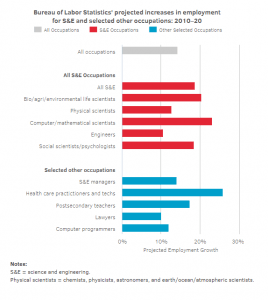
The number of science and engineering jobs in the U.S. is expected to continue to expand significantly. U.S. students need better STEM education to fill the positions. Source: National Science Foundation.
The answer is to improve the quality of science education. The NSF grant for the Noyce Master Teaching Fellows Academy provides the teachers with supplemental salary and supports them to take specialized graduate courses at CSI, to participate in professional development workshops in STEM education and leadership, and to participate in conferences.
While it helps the teachers deepen their science knowledge and improve their teaching skills, it is mainly focused on developing their leadership skills to become teacher leaders who can role-model effective practices in their schools and across Staten Island’s District 31.
“The main goal of this project is to provide science teachers in underperforming, high-poverty elementary schools with critical disciplinary and pedagogical understandings, so they may more effectively engage students in science learning and achievement,” said Dr. Irina Lyublinskaya, Professor of STEM education and Director of the Discovery Institute, who is the principal investigator on the project. “Further, the project aims to build the teachers’ leadership skills, so they can sustain a professional learning community in their schools and across the district.”
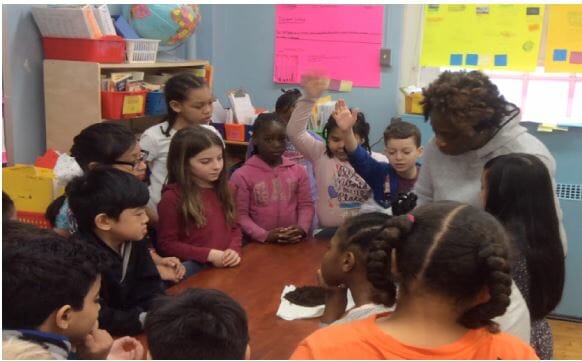
Sharon Cameron of P.S. 45 facilitates a science lesson with her students at the Staten Island Title I elementary school. The CSI Noyce Masters Teaching Fellows Academy is improving science teachers' knowledge and skills - and increasing student interest in science as a result.
“By focusing on teachers’ development in three overlapping waves – teacher as science learner, teacher as science teacher, and teacher as facilitator of professional community – the project pursues the development of educators’ capacity in ways that will affect not only their individual classrooms and schools, but will also cultivate a networked leadership that can influence district-wide science instruction.”
The program was welcomed by Executive Superintendent for Staten Island Schools Anthony Lodico.
“I am delighted at the prospect of District 31 schools participating in an NSF Noyce Scholarship for Master Teaching Fellows in elementary school science,” Lodico wrote in a letter of support. “Many schools in District 31 have worked with the College of Staten Island (CSI) in different capacities and I can attest to a long history of highly successful collaborations and partnerships between schools and teachers in District 31 and the College of Staten Island’s Division of Science and Technology, School of Education, and Discovery Institute.”
“The NSF grant for the Noyce Master Teaching Fellows Academy provides equity and excellence in the teaching and learning of Science education, which I am confident will increase academic achievement for our students,” said Richard Tudda, the science instructional lead of District 31.
“Learning science is a cumulative process, which requires a foundation built in childhood,” Lyublinskaya said. “If students don’t learn the basics, if we don’t prepare them early enough, it’s too late. We need to do it during the critical elementary school period. And for that we need good elementary school teachers. That’s what makes a difference.”
It’s not hard, perhaps, to see why students lack enthusiasm for science: science education does not get as much attention or resources as other subjects, particularly reading and writing and math.
“When I think of low-quality science teaching, I picture students with a science textbook, sitting at their desks, reading a chapter, and answering questions,” Lugo said. “Maybe the teacher might do a demonstration in front of the class, or perhaps the students will follow a step-by-step set of instructions to do an “experiment.”
“The students are being given information and expected to retain it.”
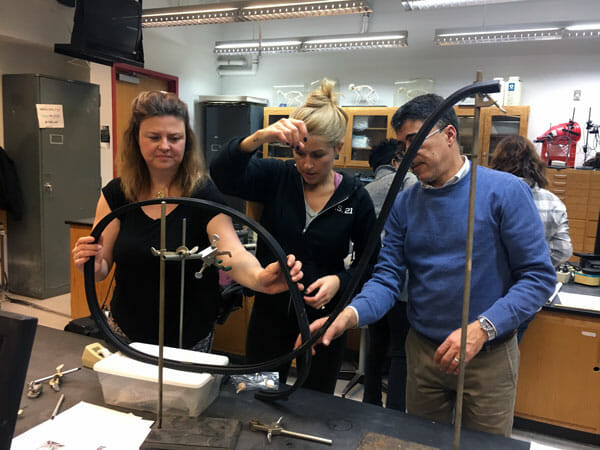
From left to right, Deirdre Reilly (P.S. 22) and Nicole Altilio (P.S. 21) work with Dr. Abdeslem El Idrissi, CSI biology professor and co-principal investigator on the Noyce grant, on an activity in their graduate course.
Consider, in contrast, how Deirdre Reilly, who teaches science at P.S. 22 in the Staten Island’s Graniteville neighborhood, taught her students about animal adaptation, using bird beaks as an example.
“It was open-ended questioning and more research-driven,” said Reilly who has taught for almost 20 years. “You give them a broad theme and they’d have to do their own research, rather than me just teaching them a lesson on animal adaptation.”
The difference in her students’ energy for the topic was marked, she said.
“They get more excited,” Reilly said. “It’s a lot of work on (the teacher’s) end. It’s more conversation driven. A lot of your time is based on what the students are learning and catering to that, and giving them feedback on what they’re learning. It’s more feedback based.
“It gives them a lot more freedom and their interests come out. You give them time to explore questions and allow them to come up with their own idea.”
Raffaella Passanisi, also of P.S. 20, agreed. Passanisi and Marrapodi completely reoriented their teaching toward this “inquiry model,” which is also aligned with the Department of Education’s new science curriculum, known as “Amplify.”
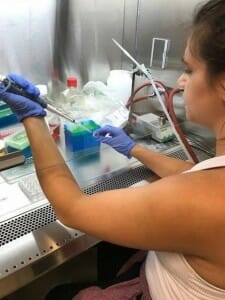
Noyce Master Teacher Fellow Jaclyn Durkin of P.S. 11 investigating the health benefits of organic vs. non-organic foods in a a biology research lab at CSI.
“Natasha and I made everything problem-based or hands-on experience so students could learn through inquiry,” Passanisi said. “Student engagement was sky high. All of the students were participating, they were really excited.
“They definitely showed more of an interest in science. We were able to change their perspectives on how they felt about science – at least for a good number of our students.”
Once a month, after school, the teachers participate in professional development workshops on the College’s campus and they take courses during the semester. They also participate in Saturday program that includes six full-days and focuses on STEM research experiences led by CSI faculty.
These activities deepen their science content knowledge, improve their science pedagogical content knowledge, and develop their leadership skills.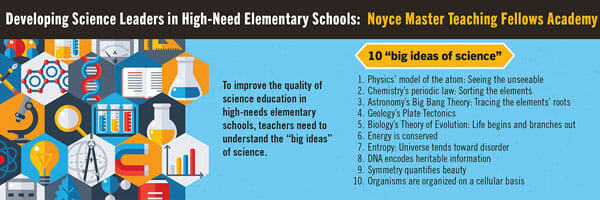
- This year (year two), the Noyce Masters Teaching Fellows are learning the 10 “big ideas” of science.
In its second year in the graduate course co-taught by Lyublinskaya and Dr. Abdeslem El Idrissi, CSI biology professor and co-principal investigator on the grant, teachers are exploring the “10 big ideas” of science, Lyublinskaya said.
“These are the ideas that underpin much of our modern science today and our understanding of the natural world,” she said. “They are the major ideas which everything is based on: evolution, atomic model, Big Bang, and plate tectonics, for example.
Understanding those ideas more deeply helps teachers help students learn and appreciate science.
“I didn’t teach science at the beginning of my career,” Marrapodi said. “Even if it’s a little above my head, I feel like it’s helping me have a better understanding of science.”
The CUNY Discovery Institute is proud to present 2017-2022 Noyce Master Teaching Fellowship Award recipients: Sharon Cameron (P.S. 45), Nicole Caruso (P.S. 160), Jarra Dandrea (P.S. 861), Jaclyn Durkin (P.S. 11), Lisa Esposito-Planzo (P.S. 45), Joy Hines (P.S. 18), Kimberly Kosnac (P.S. 19), Rebecca Lugo (P.S. 78), Natasha Marrapodi (P.S. 20), Raffaella Passanisi (P.S. 20), Nicole Altilio (P.S. 21), Deirdre Reilly (P.S. 22), Nancy Rogina (P.S. 18), Nicole Tartaglione (P.S. 16), and Lisa Thompson (P.S. 78).

